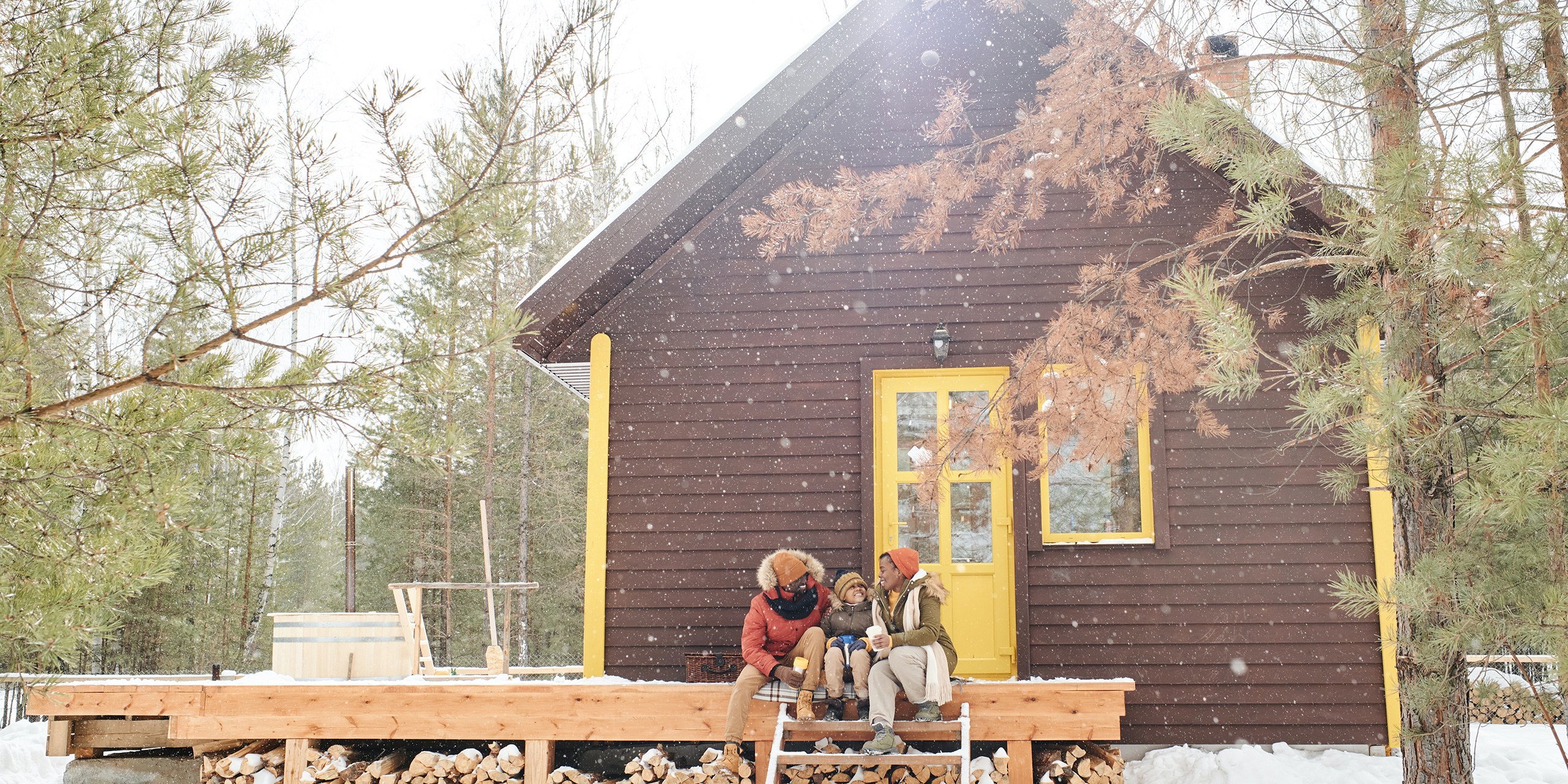West Palm Beach Buyers: How Debt-to-Income Ratios Impact Conventional Approval
| By Nick Pifer | 0 Comments

Why Debt-to-Income Ratios Matter in Conventional Lending
What Debt-to-Income Ratio Means for Mortgage Approval
Debt-to-income ratio, commonly referred to as DTI, compares a borrower’s total monthly debt obligations to their gross monthly income. Conventional lenders use this ratio to determine whether a borrower can reasonably manage a mortgage payment alongside existing debts. For West Palm Beach buyers, understanding DTI is essential because it directly influences approval decisions, loan amounts, and interest rate options.
A strong credit score alone does not guarantee approval if monthly obligations consume too much income. Lenders want assurance that borrowers can sustain payments over the life of the loan, even if financial conditions change. DTI offers a standardized way to assess that risk.
Why Lenders Rely on DTI to Measure Risk
DTI provides a snapshot of financial capacity rather than past behavior. While credit scores show how borrowers handled debt in the past, DTI focuses on present obligations. Conventional lenders view lower DTI ratios as indicators of financial flexibility and stability.
In markets like West Palm Beach, where property values, insurance costs, and taxes can increase monthly payments, DTI plays an even larger role. Lenders need to confirm that borrowers can handle housing costs without becoming overextended.
How DTI Differs from Credit Scores
Credit scores measure repayment history, utilization, and account management. DTI measures cash flow. A borrower may have excellent credit but still face challenges if their income is stretched thin by existing loans. Conversely, a borrower with moderate credit but low debt may qualify more easily due to favorable DTI.
Understanding this distinction helps West Palm Beach buyers prepare more effectively for conventional loan approval.
How Conventional Lenders Calculate Debt-to-Income Ratios
Front-End Versus Back-End DTI Explained
Front-end DTI focuses on housing expenses alone, including principal, interest, taxes, insurance, and any homeowners association dues. Back-end DTI includes all recurring monthly debts, such as auto loans, student loans, credit cards, and personal loans, in addition to housing costs.
Conventional lenders primarily rely on back-end DTI when making approval decisions. This comprehensive view ensures that all obligations are considered.
Which Monthly Debts Are Included in DTI Calculations
Lenders include any debt that appears on the credit report or is otherwise disclosed. This includes minimum credit card payments, installment loans, leases, and alimony or child support obligations when applicable.
Even small recurring payments can add up. West Palm Beach buyers are often surprised to learn that subscriptions or deferred interest accounts reflected on credit reports can impact qualification.
Income Types Lenders Accept for DTI Purposes
Qualifying income must be stable, documented, and likely to continue. Salaried income, hourly wages, and consistent overtime or bonus income may be included if supported by history. Self-employed income is reviewed using tax returns and averaged over time.
Retirement income, rental income, and certain investment income may also count, provided documentation meets conventional guidelines.
Typical DTI Limits for Conventional Loans
Standard Debt-to-Income Thresholds Under Conventional Guidelines
Most conventional loans aim for a back-end DTI at or below the low to mid forty percent range. This threshold balances borrower flexibility with risk management. Staying within this range often leads to smoother approvals and better pricing.
West Palm Beach buyers should view these thresholds as guidelines rather than absolute limits. Individual loan scenarios vary based on compensating factors.
When Higher DTIs May Still Be Approved
Higher DTI ratios may be approved when borrowers demonstrate strong compensating factors. High credit scores, significant cash reserves, stable long-term employment, and larger down payments can all offset elevated DTI.
Automated underwriting systems evaluate the full financial picture. A higher DTI does not automatically result in denial if the overall profile is strong.
Compensating Factors That Offset Higher DTI Ratios
Compensating factors provide reassurance to lenders. Examples include minimal revolving debt, long employment history in the same field, or substantial assets remaining after closing.
For West Palm Beach buyers with higher incomes but higher housing costs, these factors can make the difference between approval and denial.
Common Debt Sources That Impact Approval
Auto Loans, Student Loans, and Personal Debt
Auto loans and student loans are common contributors to DTI. Student loans are often calculated using specific guidelines, especially if payments are deferred. Personal loans and installment debts also factor into monthly obligations.
Managing these debts strategically before applying can improve qualification outcomes.
Credit Card Balances and Minimum Payments
Even when balances are low, minimum payments count toward DTI. Carrying multiple cards with small balances can collectively impact ratios.
Paying down or consolidating credit card debt may provide immediate DTI improvement.
Installment Versus Revolving Debt Considerations
Installment debts with fewer remaining payments may be excluded in certain cases. Revolving debt typically continues indefinitely and therefore carries more weight in underwriting.
Understanding how different debt types are treated helps buyers plan effectively.
Income Stability and Its Role in DTI Approval
How Employment History Affects DTI Calculations
Lenders prefer consistent employment history, generally over two years. Frequent job changes may require additional explanation. Stable employment supports income reliability, which strengthens DTI analysis.
West Palm Beach buyers in specialized or professional fields often benefit from clear career progression.
Overtime, Bonus, and Commission Income Rules
Variable income must be documented and averaged over time. Sporadic income may not be counted. Consistency is key.
Borrowers relying on variable income should prepare documentation early to avoid delays.
Self-Employed Income and DTI Review
Self-employed borrowers face more detailed review. Net income from tax returns, rather than gross revenue, is used for DTI calculations.
Proper planning and documentation help ensure accurate income representation.
Location Based Considerations for West Palm Beach Buyers
How West Palm Beach Home Prices Affect DTI Ratios
Higher home prices increase monthly payments, which directly affect DTI. Buyers must balance desired neighborhoods with affordability.
Understanding price ranges and tax implications supports realistic home searches.
Property Taxes, Insurance, and Their Impact on Monthly Debt
Property taxes and insurance premiums in South Florida can be significant. These costs are included in housing expenses and influence DTI.
Accurate estimates prevent unexpected qualification issues.
HOA and Condo Fees in West Palm Beach Communities
Many West Palm Beach properties include HOA fees. These monthly obligations are added to housing costs and impact DTI calculations.
Buyers should factor HOA dues into affordability assessments early.
Strategies to Improve Debt-to-Income Ratios Before Applying
Paying Down Debt Versus Increasing Income
Reducing monthly obligations often has a quicker impact than increasing income. Paying off or reducing balances can lower DTI immediately.
Increasing income through documented means may also help, but timing and documentation matter.
Timing Large Purchases Before or After Closing
Large purchases financed before closing can raise DTI and jeopardize approval. Delaying new obligations until after closing is often wise.
Planning purchase timing helps protect loan eligibility.
How Reducing Monthly Obligations Strengthens Approval
Even modest reductions can improve ratios. Eliminating a single car payment or credit card balance may make a significant difference.
DTI Considerations for First-Time Buyers
Balancing Student Loans and Entry-Level Home Prices
Student loan payments often impact first-time buyers. Understanding how these loans are calculated helps buyers plan effectively.
Entry-level pricing in West Palm Beach requires careful budgeting.
Gift Funds and Their Indirect Impact on DTI
Gift funds do not directly affect DTI, but they can reduce loan amounts and monthly payments, indirectly improving ratios.
Proper documentation is essential.
Why Budget Planning Is Critical for New Buyers
First-time buyers benefit from conservative budgeting. Understanding total monthly obligations prevents financial strain.
DTI Considerations for Investors and Multi-Property Owners
How Existing Mortgages Are Counted in DTI
Existing mortgage payments are included in DTI calculations. Rental income may offset some obligations if documented properly.
Investors must plan carefully to manage ratios.
Rental Income Offsets and Documentation Requirements
Rental income is typically discounted to account for vacancies. Documentation must support consistent cash flow.
Accurate records strengthen investor applications.
Reserve Requirements and Their Relationship to DTI
Reserves do not directly change DTI, but they support approval in higher-risk scenarios.
Strong reserves reassure lenders.
DTI and Refinancing in West Palm Beach
Rate and Term Refinancing DTI Guidelines
Lower interest rates can reduce monthly payments and improve DTI. Rate and term refinances often have flexible guidelines.
Refinancing can realign affordability.
Cash-Out Refinance DTI Considerations
Cash-out refinances increase loan balances and payments, which may raise DTI. Careful analysis is required.
Borrowers should balance access to cash with affordability.
How Lower Rates Can Improve DTI Ratios
Even small rate reductions can have meaningful impact on monthly payments.
Timing refinances strategically helps manage ratios.
Mortgage Insurance and DTI Interaction
How Mortgage Insurance Affects Monthly Debt
Mortgage insurance adds to monthly housing costs and affects DTI. Higher down payments may reduce or eliminate this expense.
Understanding MI costs is important.
DTI Differences Between Low and High Down Payments
Lower down payments increase loan amounts and MI costs, raising DTI. Higher down payments may improve ratios.
Balancing cash availability with affordability is key.
Removing Mortgage Insurance to Improve Ratios Over Time
As equity grows, removing MI reduces monthly obligations and improves DTI.
Long-term planning benefits homeowners.
Budgeting and Payment Planning with DTI in Mind
Planning Payments with the Premier Mortgage Associates Mortgage Calculator
The Premier Mortgage Associates Mortgage Calculator helps buyers estimate payments, including taxes and insurance. Modeling scenarios supports informed decisions.
Buyers can test how different loan amounts affect DTI.
Estimating True Monthly Housing Costs
True costs include principal, interest, taxes, insurance, HOA fees, and MI when applicable.
Comprehensive budgeting prevents surprises.
Preparing for Long-Term Affordability
Affordability extends beyond approval. Buyers should plan for maintenance, insurance changes, and lifestyle expenses.
Common DTI Misunderstandings That Delay Approval
Assuming Gross Income Equals Qualifying Income
Not all income qualifies. Lenders apply specific rules.
Understanding qualifying income avoids disappointment.
Overlooking Small Monthly Debts
Small debts accumulate. Every obligation matters.
Accurate disclosure is essential.
Why Preapproval Matters Before Home Shopping
Preapproval clarifies limits and strengthens offers.
It prevents wasted time and stress.
How Premier Mortgage Associates Helps Manage DTI Challenges
Local West Palm Beach Lending Expertise
Local knowledge helps anticipate regional cost factors and structure loans accordingly.
Structuring Loans to Fit DTI Guidelines
Thoughtful structuring balances loan size, down payment, and term.
More Tools and Resources on the Premier Mortgage Associates Home Page
Additional guidance and tools are available on the Premier Mortgage Associates home page.








